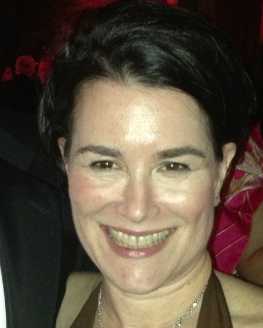The Miracle Worker?
- Thursday, 25 April 2013 07:32
- Last Updated: Thursday, 25 April 2013 07:47
- Published: Thursday, 25 April 2013 07:32
- Hits: 5818
 Can Rye Brook functional medicine Dr. Susan Blum's immune boosting plan actually help you to reverse the effects of autoimmune dysfunction? In my family, we have an abundance of riches in the autoimmune disorder department, and recently, three different specialists taunted me with concern that I might just be developing some sort of autoimmune disorder of my own. I asked each of them what I could do to fortify my immune system to ward off this problem and head it off at the pass, and they shrugged. "Not really." "Nothing I've read". "Nothing I can say for sure".
Can Rye Brook functional medicine Dr. Susan Blum's immune boosting plan actually help you to reverse the effects of autoimmune dysfunction? In my family, we have an abundance of riches in the autoimmune disorder department, and recently, three different specialists taunted me with concern that I might just be developing some sort of autoimmune disorder of my own. I asked each of them what I could do to fortify my immune system to ward off this problem and head it off at the pass, and they shrugged. "Not really." "Nothing I've read". "Nothing I can say for sure".
When I heard that Dr. Susan Blum, the author of a book called "The Immune System Recovery Plan: a Doctor's 4-Step Program to Beat Autoimmune Disease" was coming to SHS to speak, I felt I had to go. Besides, she kind of put it out there that a happy immune system also meant more energy, better muscle tone, flat stomach, and excellent humor too. I figured I could help my kids fight off future would-be autoimmune assailants, and grow stronger, svelter, and nicer myself along the way. If what she said proved true, it would be a big win/win for all of us! I'd figure out how to get rid of autoimmune's menacing inflammation from my body, and reconnect with my inner, higher energy, sinewy, muscle-building wood nymph all at once.
But of course, I have grown weary of the purveyors of false hope, and I go to each new speaker these days with a healthy dose of skepticism. Many of them are hucksters of hokum, long on hocus pocus and short on clinical evidence. But here comes Dr. Blum, actual MD, MPH with actual medical street cred: she is currently an assistant clinical professor in the department of preventive medicine at Mt. Sinai medical school and holds a masters in public health from Columbia in addition to her more "outside the box" training at the Center for Mind-Body Medicine and the Institute for Functional Medicine. She describes herself as a scientist who relies on a solid scientific foundation and builds on that to incorporate elements from integrative medicine as well. A few 10583 friends who couldn't make the lecture asked me to take notes and tell them all about it and where I thought she came down on the prophet/false prophet continuum...so here goes.
of them are hucksters of hokum, long on hocus pocus and short on clinical evidence. But here comes Dr. Blum, actual MD, MPH with actual medical street cred: she is currently an assistant clinical professor in the department of preventive medicine at Mt. Sinai medical school and holds a masters in public health from Columbia in addition to her more "outside the box" training at the Center for Mind-Body Medicine and the Institute for Functional Medicine. She describes herself as a scientist who relies on a solid scientific foundation and builds on that to incorporate elements from integrative medicine as well. A few 10583 friends who couldn't make the lecture asked me to take notes and tell them all about it and where I thought she came down on the prophet/false prophet continuum...so here goes.
As the founder and director of the Blum Center for Health in Rye Brook, Dr. Blum practices what has come to be known as functional medicine. The idea behind this newish field is that, instead of treating symptoms, doctors put on their Dr. House hat like that prickly but endlessly wise TV show doc/diagnostician, and become diagnostic detectives, looking for the root cause of what ails you. Blum likes to quote Dr. Sidney Baker, one of the founders of this outgrowth of preventive medicine. "If you are sitting on a tack, the answer is not to treat the pain. Find the tack and remove it!" "The tack" in the example Blum uses, is the place where the immune system is in revolt...and taking it out on you. The pain or symptom is merely the result of that revolt.
Blum says you need to look at the whole patient, taking into consideration a variety of factors not always given proper credence—potential toxins in your environment, as well as lifestyle factors-- social life, stress level, relationships, diet, exercise, sleep habits and any symptoms you might be struggling with. She and her team integrate western medical practices with what are still regarded as "alternative" approaches of mindfulness and meditation.
The way Dr. Blum explains it, the immune system is your defense system. It starts with the gut which is responsible for 70 percent of the body's immune capacity and covers the surface area equivalent to that of a tennis court. The eyes may be the window to the soul, but the gut is the window to the heart....the joints...the health... the whole shebang. The mind ties in to all of this when stress comes into play—and so, the mind/body connection is very powerful both for its power to heal and to harm. When the gut is working properly, there are cell layers that stick tightly together and form a protective barrier that is hard to penetrate. This barrier manages how your immune system reacts to anything foreign.
In addition to stress, Blum names triggers she calls "The four A's-- antacids, antibiotics, alcohol, and Advil (or other NSAIDs)" for setting off the cascade of events leading to autoimmune dysfunction in the gut. Any of these factors can throw off the balance of flora in the gut, and when the balance is off, the barrier is compromised, and you have a condition called leaky gut syndrome. Having a leaky gut means that anything that is inside your intestines...good or bad bacteria, can be "seen" by the immune system and provoke a response. When this goes on for an extended period of time, the immune reaction begins to malfunction and your own cells can mistake your own tissue for foreign invaders. This, in turn, sends inflammatory molecules all over your body and causes pain in many places, like the pain of rheumatoid arthritis. When the gut is not working properly, the mitochondria or "furnace" of the muscles can't get the proper nutrients and therefore can't fire properly. Blum says problems within the gut are responsible for the lion's share of a huge variety of largely undiagnosed autoimmune ailments effecting some 23 million Americans.
What is Autoimmune Dysfunction?
It can come in the form of the classic allergic response (IgE), or the food sensitivity response (IgG), joint pain, foggy brain, hardening of the arteries, among others. It comes most often to those with a genetic predisposition to it, but not exclusively to them. Dr. Blum has come up with a four-point program to heal the immune system, starting with the gut.
Step One: Treat Food as Medicine.
Treating food as medicine means making good food choices that support good health and reduce inflammation, because, she says "All calories are not created equal. You must see calories as tools in your anti-inflammatory arsenal. Apples, for example, go to the cellular level and trigger reactions in cells providing vitamin C and phytonutrients. Watermelon even sends its nutrients to the cellular level. Pretzels, by contrast, are made up of yeast and wheat, and your body processes them just like sugar. Your body digests simple flours like that fast. This makes your blood sugar shoot up, and then, drop fast, and that quick up and down messes with the hormones controlling your body. I'll bet you didn't know that skim milk makes your blood sugar bump up too!"... she says, ending her breathless list of food sins and saviors. She guessed correctly! I did not.
"And the cheerios you always hear about being so healthy...they cause a big carbo load. They create inflammation and inflammation makes you tired."
This logic, called nutria-genomics, is the idea that one's nutritional choices effect the expression of the genes of the host organism, (i.e.: the health and well being of homo Scarsdalianus).
This is the cornerstone of Blum's food as medicine philosophy: you must make good food choices, but, not all good choices are created equal. One man's perfection, is another man's poison. Bad choices are foods to which you have food sensitivities, as opposed to just food allergies.
Regular allergy tests only test for anaphylactic allergies. But there are different foods and chemicals that each of us has sensitivities to as well, and they can do different kinds of damage in each of us. So Blum's first stop is to check for food sensitivities. And the best way to do that is with a rather severe elimination diet: get rid of the five leading inflammation-causing culprits for three weeks all at once, and then slowly add them back into your diet, one at a time every four days.
Blum's version of the five deadly food sins; her olfactory axis of evil: gluten, dairy, soy, corn, eggs. Bye bye, breadsticks. Hello, ancient grains.
Autoimmune Healing Step Two: Understanding the Stress Connection:
Blum explores all of the environmental and lifestyle issues affecting her patients, looking for evidence of stress in their lives and the effects of stress on their bodies. "Cortisol, the main stress hormone, suppresses the immune system, and tends to increase the waistline too, because people with high levels of stress and cortisol, tend to crave sugar and high fat foods that, in turn, tend to settle in around the waistline." This fat, often called "brown fat" in the medical community, behaves differently from other fat in the body and creates a great deal of inflammation, which, as we have discussed....is the devil's/ autoimmune disease's handiwork.
Blum says the key to managing the destructive power of stress is figuring out how to stop ruminating on and reliving the issues that cause stress in the first place. So she has programs to help patients with meditation and other mindfulness exercises. "Stress is believed to be a contributing factor in an amazing 80 percent of all chronic conditions, including autoimmune disease, heart disease, stroke, and cancer." Too much stress can lead to adrenal fatigue, and that leaves you vulnerable the kind of inflammation that leads to developing puffiness and stiffness in joints and muscles, and general exhaustion, and the autoimmune disorders associated with those symptoms.(rheumatoid arthritis, MS, Lupus...) No thanks.
Step 3: Healing Your Gut:
When they are not working properly, the cells lining your intestinal tract cannot recognize the difference between foreign invaders and your own tissue, and they treat both as enemies. These immune cells release many, many inflammatory molecules when they are activated...and that brings about...once again...you know the devil: inflammation. (are we sensing a pattern here?) So Blum says "The bottom line is that having enough friendly flora (probiotics) in your gut reduces the incidence of allergies and autoimmune diseases. You bring the outside world into your body through your mouth every day. You need to make sure there are plenty of good bacteria in there to keep things in balance."
Finally, Step 4, Supporting Your Liver:
The fourth front to take on autoimmune disease before it hits or to reverse it if it has, is removing the body's exposure to toxins. The liver takes out the toxins that your body takes in, so Dr. Blum says you need to support your liver to help it do its job. She says we all need to be aware of the environmental toxins we are routinely exposed to, and take steps to diminish that exposure. Our individual toxic load comes from our lifetime exposure to a wide range of substances that can damage cells from dry cleaning solvents, to glue, to paint, to pesticides, to heavy metals like mercury, lead, and arsenic. Too much exposure to toxins starts to clog up your liver, and that can lead to feeling puffy all over, muscle pain, tingling in your extremities, or unexplained weight gain.
When the liver, which functions as the body's strainer, is clogged with toxins, it is hard for the filter to work well, and it slows down. Blum offers a plan to boost the liver enzymes' detox functioning, remove heavy metals, and reverse disease. This part was the fuzziest for me, but if her clinical findings bear out over a larger group, she's got a very interesting plan.
Conclusion: So What Do We Make Of This?
After I told my rheumatologist about what I'd learned from Dr. Blum's lecture, she said, cautiously, that she HAD heard anecdotal evidence from patients to support Blum's claims, (taking gluten and dairy out of their diet gave them greater strength and energy) but since she hadn't read the program herself, she couldn't endorse it. Blum claims that too many doctors simply don't have or don't take the time to stay up to date on advancements in their fields, and if they did, they'd be hopping on the functional medicine bandwagon in droves. It certainly seems that it would be worth looking into.
So, where does this leave this me and my merry band of skeptics? While I am not a physician, and I can't claim to evaluate the merit of one study over another for anyone but myself and my family, but I can say that the old saw "an ounce of prevention is worth a pound of cure" makes good sense here. And while giving up bread and cheese does seem like some pretty harsh medical concessions to make, it beats prescription medications with unpleasant side effects. And if there is anything I can do to head off the risk of autoimmune disease at the pass, I want to try it.
As Blum says, "If you go to a GI doctor, they look for disease under a microscope. They do not measure flora. Disease takes time to happen. Why not do what you can to prevent it blossoming?" In the offices of two other specialists, I have been told I may have some sort of as yet not fully manifest autoimmune disorder in the works. Do I just sit there and wait for it to hit? I say no. But it's not going to be easy giving up those axis of evil foods. I'm the gal who jokes that if I ever got sent to prison on a bread and water diet it wouldn't be a hardship if the bread had a nice crust. Still, the upside is just too huge to ignore.
My gut tells me I just have to give it a shot! Contributor Sharon Dizenhuz is a former reporter and anchor on New York 1 News and a Scarsdale mom.
Contributor Sharon Dizenhuz is a former reporter and anchor on New York 1 News and a Scarsdale mom.













